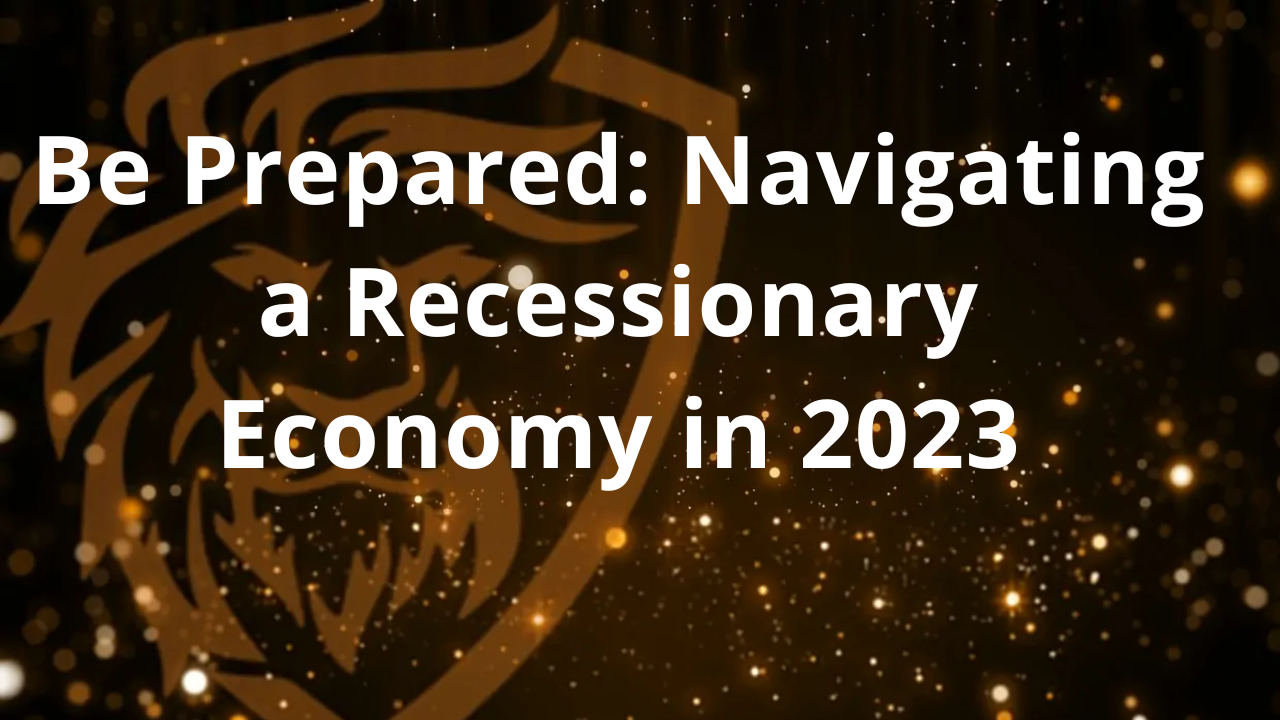.png)
As we move further into the 21st century, it’s becoming increasingly important to be aware of the economic landscape and take steps to ensure our financial stability.
The 2020 global pandemic has been an unexpected reminder that even in today's interconnected economy, drastic changes can happen quickly, thus leading us into a recessionary period.
When faced with an uncertain future like this, preparation is key. Being ready for what lies ahead will help you weather any storm and make sure your finances are secure over time.
That’s why now more than ever before it’s important to understand how to navigate a recessionary economy so that as 2023 rolls around you can stay afloat despite whatever comes your way from thereon out.
The recession of 2023 is coming.
Observing the indicators
The 2023 recession is coming. In preparing for a recession, you need to understand the elements of an economic slowdown. A recession occurs when there are two consecutive quarters in which real gross domestic product (GDP) has decreased, resulting in fewer jobs and reduced consumer spending. This leads to a decrease in wages and an overall decline in business activity throughout the economy.
It is important to take note of the warning signs of potential recessions such as high unemployment rates, declining stock markets, or increased debt among consumers while also staying current on industry trends which may influence decisions regarding investments or job-seeking processes.
To make matters worse, businesses may begin laying off workers or cutting back on hours due to lower profits. This further exacerbates unemployment levels and can lead to increased indebtedness among consumers who have taken out loans based on their earnings potential prior to the downturn.
Diversifying your investments
One important protective measure lies in diversifying your investments beyond just stocks or real estate.
Gold remains an incredibly sound option for protecting wealth against inflationary pressures caused by such events. Due diligence should always come first before investing anywhere else these days to avoid being scammed.
Taking steps towards economic wellness
But more than simply making savvy choices about where and how you invest your hard-earned money, taking steps towards economic wellness ahead of time can make all the difference for weathering tough times gracefully down the road.
Having enough money set aside for emergencies should be a top priority as credit restrictions become more stringent during recessions.
Studies show that those who maintain consistent savings habits during all economic climates tend to fare much better than those without such plans when times get tough.
Having concrete goals
Outlining concrete goals related to both long-term savings plans as well as short-term budgeting strategies can provide much-needed guidance during turbulent periods.
It is important to not only keep up with savings goals but also pay bills regularly regardless of market conditions.
Setting up automatic payments whenever possible allows individuals greater freedom compared to worrying about whether they've paid each bill on time without fail every month.
Building multiple income streams
Look into alternative sources of income if necessary. Whether it’s taking a second job, starting a small home business, freelance/consulting work, and investing these funds back into one's own endeavors rather than letting them go unused so you can continue meeting your financial obligations while riding out rough patches until they pass over eventually.
Furthermore, as we have seen many companies do before us, it pays dividends to develop strategic partnerships with other firms whose services complement your own.
Even if there currently isn't any immediate need for them, these relationships help spur growth. Both parties prepare to ride through difficult markets outcome.
Conclusion
Most importantly, for economically challenging situations, however, remember not all hope is lost. Furthermore, remain optimistic, keep learning, always push forward, and strive to continue growing. And above all else, never forget resilience is truly key to surviving unpredictable periods.
By carefully assessing risk, investing wisely, and putting together solid contingency plans. Anyone can ensure financial safety amidst the inevitable turmoil. Although daunting tasks lay ahead, success is within the reach of those willing to invest the effort and time required to turn the tide favor once again.
Posted Using LeoFinance Beta




